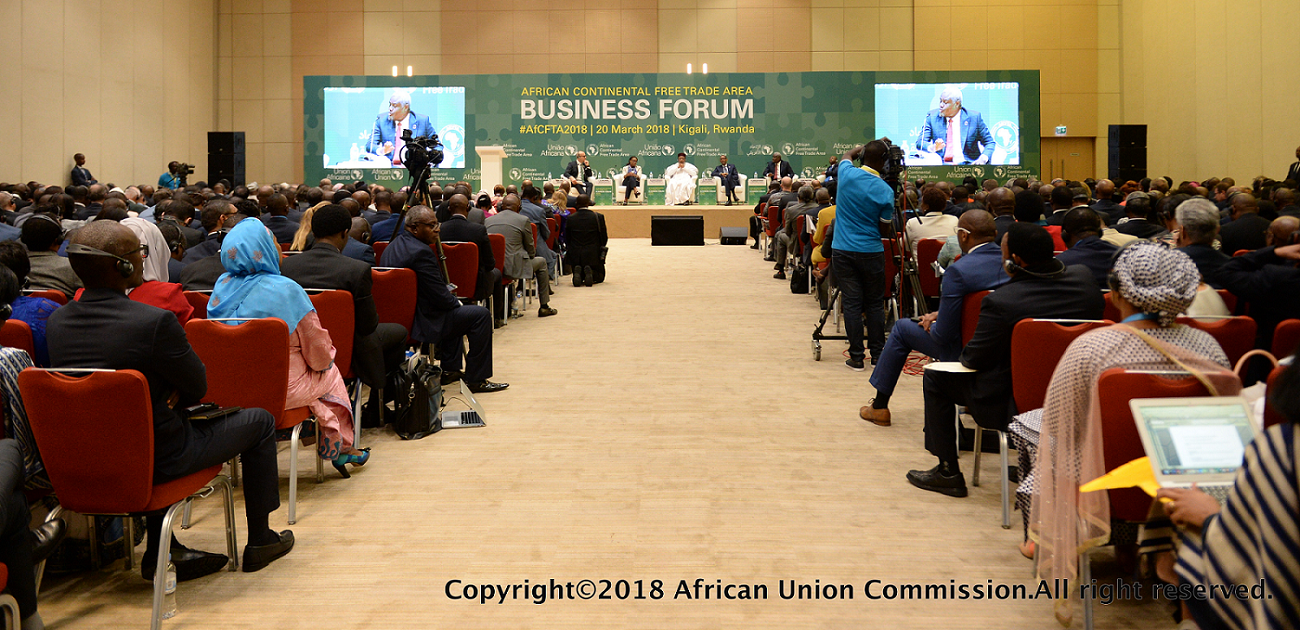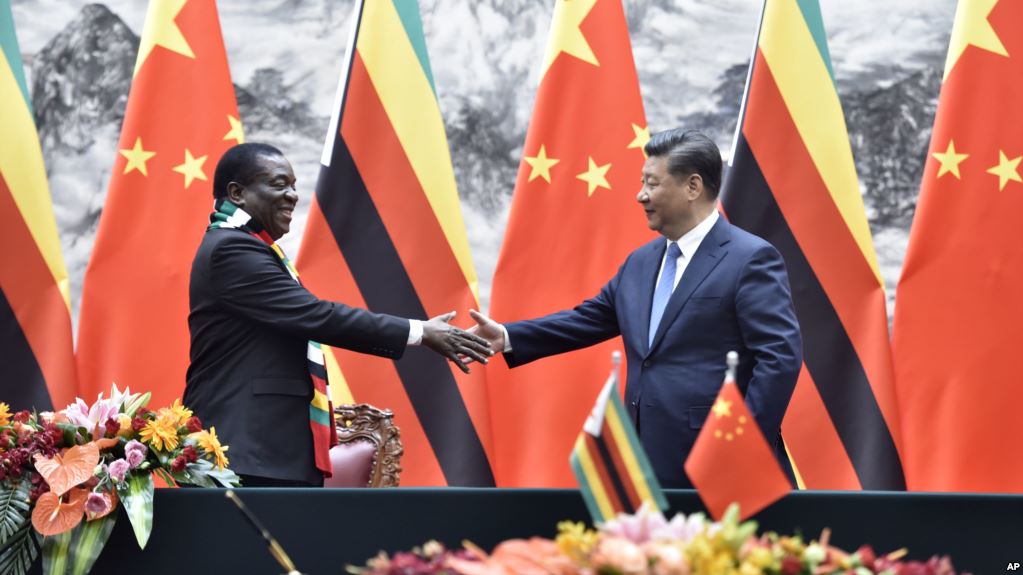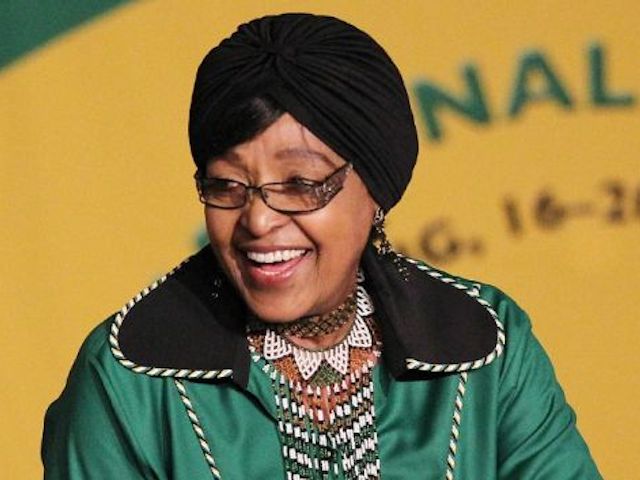On 21st March 2018 in Kigali, Rwanda, Africa began the journey of creating one market to overcome her historical fragmentation by signing the Kigali Consolidated Text of legal instruments establishing the African Continental Free Trade Area (AfCFTA) and thereafter, launching it. This Consolidated Text contains the framework Agreement, Protocol on Trade in Goods, Protocol in Trade in Services and Protocol on Rules and Procedures on the Settlement of Disputes.
The African Continental Free Trade Area is an economic space encompassing all 55-member states of the African Union to promote duty-free flow of goods and services once it is established. It will be a market of 1.2 billion people. This population is projected to grow to 1.7 billion by 2030. In that year, the African middle class, which is also growing will be 600 million people.
With a growing middle class will also emerge growing spending power in diverse fields ranging from consumption of food to housing construction. Consumption is critical to the growth of the business, stronger economic growth and economic diversification.
We also project trade expansion under the AfCFTA, which is good for business, with the expectation that Intra-African trade will increase by 53.2% by 2022 just from tariff liberalization. This is projected to double if there is the effective removal of non-tariff barriers.
Two critical decisions which will make the free trade area more attractive were made by the 2018 January Summit. These are the adoption of the Single African Air Transport Market and the Protocol on Free Movement of People, Right of Residence and Right of Establishment. These two, along with the African Continental Free Trade Area project are flagship projects of the African Union Agenda 2063.
With the key objective of laying firm foundations for our economic integration, we will during this year, begin work on negotiating protocols on competition, investment and intellectual property rights. With their successful conclusion, this will create a continent-wide environment of fair competition, harmonized investment policies and a regime for the protection of intellectual property rights that will spur innovation.
Trade and production go hand in hand. In this connection, the AfCFTA has a programme of development of regional value chains that will promote rapid industrialization in Africa. The promotion of industrialization is vital because 42% of intra-African trade is currently composed of manufactured products. We need to build on this so that industrialization becomes a key input in increasing the share of intra-African trade in Africa’s total trade as well as raising Africa’s share in global trade which has been very low since the early years of the independence of African countries.
The most immediate task after signature of legal instruments is securing ratifications by a minimum of 22-member states so that the legal instruments come into force. Our target is to have this achieved with 9-12 months.
Eleven of the member states did not sign the legal instruments because they are still continuing their constitutional and stakeholder consultations processes before signing. We expect a majority of these to sign in July this year at the next regular Summit to be held in Mauritania.
On 20th March, 2018, the African Union organized the African Continental Free Trade Area Business Forum which brought together policymakers and private sector leaders with a view to leveraging the power of the private sector to drive Africa’s integration. The Forum was successful both in terms of attendance and commitment by the private sector to institutionalize this Forum. We welcome this development because we need investments from the private sector in Africa and abroad to promote production, trade, employment and improved livelihoods. We also foresee an increase in private-public partnerships projects in infrastructure development after the private sector has been exposed to the opportunities offered by the African Continental Free Trade Area. With rapid transport and communication infrastructure development, goods and services will flow more efficiently across the Continent. Development in energy infrastructure will also spur industrialization as one of the critical challenges to business operations in Africa are energy deficits in many of our countries. Equally important, the development of social infrastructures like education, skills training, sanitation and health will generate high skills, productivity and improved health standards.
During our meeting with the Business Leaders, we invited them to increase their investments on the continent. It is currently 12% of total investments, according to the International Chamber of Commerce. The figure for Asia is 33%.
To build on the success of the AfCFTA Business Forum, we are, in partnership with the International Trade Centre and the Zambian Government organizing an AfCFTA Youth Forum in Lusaka in September this year.
The AfCFTA Business Forum came at a time when many of our countries are undertaking substantive economic and regulatory reforms aimed at reducing the cost of doing business.
We are taking additional measures to make the African Continental Free Trade Area attractive to business.
We have long recognized that Business Leaders operating in Africa have experienced inconveniences caused by multiple visas required for them to travel across the Continent. This will be resolved when the Protocol on Free Movement of People, Right of Residence and Right of Establishment comes into force. With the Protocol coming into force, Africa will be moving a step closer to coming up with the African passport.

In advance of this, some of our countries have started issuing visas on arrival to Africans travelling to other African countries. We have hence started the process of creating an environment of business without borders both in terms of travel and commercial transactions.
With the launch of the Single African Airport Transport Market by the African Union Heads of State and Government, in January this year, we expect increased investments in civil aviation and with them, an increasing number of new entrants in the African commercial airline industry, greater competition, lower fares as well as increased air travel. Inexpensive air travel will improve connectivity and this is vital, given the continent’s vast landmass of over 30 million square miles.
We are also in the process of establishing a Pan- African Trade Observatory which will provide timely trade statistics such as directions, patterns and commodity compositions of intra-African trade; and, more critically to business, information on Rules of Origin, tariff levels and structures, non-tariff barriers, trade regulations and technical standards; among others.
With a view to creating a Pan-African platform where business can showcase its offerings and transact sales and orders, we are partnering with the African-Export Import Bank and the Government of the Arab Republic of Egypt to organize the First Intra-African Trade Fair in Cairo, Egypt from 11th -17th December this year. The Fair will encompass diverse sectors. These are agriculture and agro-processing, automotive, consumer goods, clothing and textiles, engineering, energy and power, construction, creative industries, entertainment, heavy industries, ICT, light manufacturing, finance, healthcare, education, infrastructure development, logistics, mining and standards and quality control. We are targeting to trade deals amounting to US$25 billion.
We are also aware that assured payment in business transactions is key to promoting increased cross-border trade. In our engagements with the African Export Bank, we have been assured that the Bank will soon roll out a Pan-African payments system that would ensure that all traders undertake cross-border transactions that will be based on timely payments. With timely payments, businesses operating in Africa stand to grow rapidly. We are also mitigating risk in the cross-border trade.
Quality is key to establishing and sustaining competitiveness. We are, in this respect, also in the process of developing Africa’s Quality Infrastructure institutions dealing with standardization, metrology (measurement systems), and quality assurance. Issues of standards harmonization and facilitation of mutual recognition of conformity assessment results on the continent are in this respect being done. We are also reversing the use of quality and technical standards as non-tariff barriers. The development of quality infrastructure will ensure rapid growth of intra-African trade.
We have embarked, in partnership with the International Trade Centre on publishing a Business Guide to the AfCFTA in order to make business wishing to operate in the AfCFTA fully understand how the legal instruments establishing this institution will affect them and, in the process, position them to be more competitive in this emerging market. We shall use this guide in our awareness campaigns to the private sector on the opportunities offered by the African Continental Free Trade Area.
We recognize that small and medium enterprises will play strategic roles in the AfCFTA. They constitute close to 90% of business enterprises on the Continent. These will be part of the development of regional value chains in addition to being a source of rapid employment growth. This is critical to us since Africa has a young population with a median age of 19 years. We will be submitting to the African Union Assembly of Heads of State and Government in January 2019, a Pan-African Small and Medium Scale Enterprises Strategy.
The removal of tariff and non-tariff barriers in the AfCFTA will mainstream cross-border traders informal trade and in the process protect them from harassment, and abuse at customs and immigration points. In order to fully harness the potential of cross-border trade which is currently dominated by women and the youth, we will also promote programmes of capacity building and simplified trade regimes.
We are resolved to making the AfCFTA work. We are aware of the challenges but with determination and resilience, we shall overcome them as we exploit the limitless opportunities offered by the AfCFTA.
Albert M. Muchanga,
African Union Commissioner for Trade and Industry


